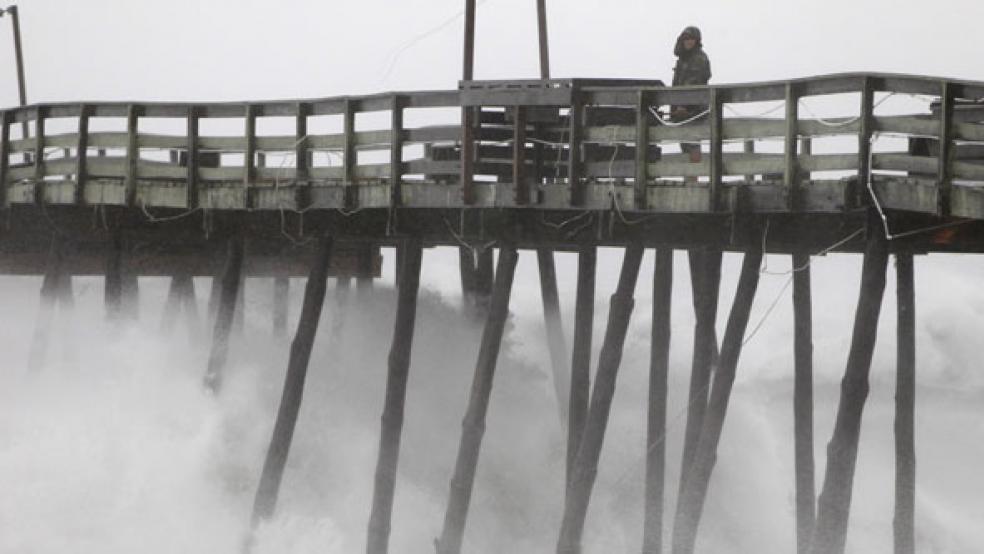If Hurricane Irene actually ends up passing directly over New York City it could wreak economic havoc to the tune of $35 billion, according to worst-case estimates by statistician Nate Silver, who crunched the data for his New York Times blog, Five Thirty Eight.
Even though the Big Apple has the largest municipal budget in the U.S., Silver says, “The city would require significant assistance from state and federal authorities. He adds that Irene “could tangibly increase the chance of a recession.”
As news of the first four deaths from Hurricane Irene (three in North Carolina, one in Virginia) emerged on Saturday, the slow-moving storm continues to roar up the eastern coast, spawning small tornadoes and shutting down power to roughly half a million people in North Carolina and Virginia combined so far. As other parts of the northeast coast continued to brace for Irene, The Fiscal Times rounded up some eye-opening data and economic news connected to the storm:
• The major metro areas affected by Irene, including New York City, Philadelphia, Boston, Baltimore and Washington, account for 16 percent of national economic output and 14 percent of total employment, according to Moody’s economist Ryan Sweet. “If damage is severe and disrupts production for several days, there will be a noticeable impact on the national economy for August,” Sweet told the Associated Press.
He also said he expected any lost output to be made up in the coming months. Construction firms would go to work rebuilding and consumers would replace damaged property – so he isn’t revising his quarterly GDP growth estimate of 1.5 percent annualized.
• Insurers are bracing for substantial losses due to the hurricane. UBS’ global equity research team estimates that equity markets have priced in a $10 billion event, with Travelers and Allstate the most exposed.
• Airlines are canceling more than 8,300 flights this weekend, from North Carolina to Boston. On Saturday alone, there were more than 3,600 cancellations.
• People across the Northeast have flooded supermarkets and chain retailers like Wal-Mart and Home Depot to stock up on food and survival items. One surprise item that has emerged on grocery lists: pop-tarts.
“Over the course of their experience with hurricanes, Wal-Mart has learned that Strawberry Pop-Tarts are on the most purchased food items, especially after storms, as they require no heating, can be used at any meal, and last forever,” Steve Horwitz, an economist at St. Lawrence University in Canton, N.Y., who studied Wal-Mart’s response to Hurricane Katrina, told ABC News.
• Shares of Energizer Holdings Inc. rose in trading on Friday as the battery maker expected to see a sales boost from shoppers who have rushed to stock up on supplies this weekend. Energizer makes an array of batteries, flashlights and other related products. The company holds a roughly 38 percent market share of the total battery business in the U.S., according to Citi Investment Research analyst Wendy Nicholson.
• Defense Secretary Leon Panetta has instructed 6,500 active duty troops to be ready in case there’s an order for them to help with Hurricane Irene relief work. Spokesperson George Little said that Panetta has issued a prepare-to-deploy order for the troops from all branches of the military if support relief efforts are required.

